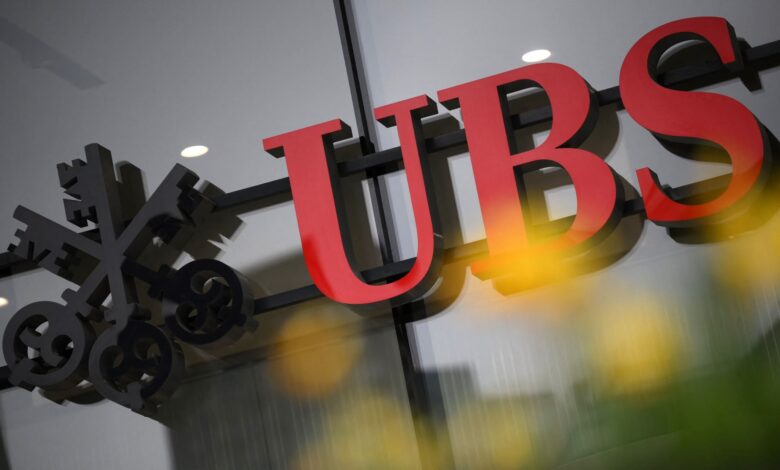UBS Q1 earnings 2025

Swiss banking giant UBS has reported strong first-quarter earnings, beating bottom line expectations with a net profit of $1.692 billion. The bank saw a significant increase in revenues in its investment banking and global wealth management units, driven by higher client activity in equities and FX trading.
UBS CEO Sergio Ermotti acknowledged the challenging environment in the first quarter, citing extreme volatility in the markets. Despite this, the bank delivered solid performance in its key business units. However, UBS also reported a decline in net interest income, down 16% year-on-year, and guided for further declines in the next quarter.
Investors are closely monitoring UBS as European banks navigate a period of monetary easing, particularly in Switzerland where interest rates are at historic lows. Ermotti expressed confidence in the bank’s ability to weather interest rate fluctuations, noting that any potential rate changes could impact net interest income.
In addition to its financial results, UBS confirmed that it had completed $500 million in share buybacks and planned to continue with a $2.5 billion repurchase plan for the rest of 2025. Analysts noted that while the results were positive, they were cautious about the sustainability of gains in certain areas.
Looking ahead, UBS faces challenges related to global trade tensions and potential recessionary pressures in the US economy. The bank has seen its shares decline by roughly 10% this year, with the imposition of tariffs by the US government contributing to market uncertainty. Switzerland faces a 31% duty if a trade deal is not reached by early July, adding further pressure on UBS’ global wealth management division.
UBS warned of the risks posed by escalating trade tariffs and increased macroeconomic uncertainty, which could impact global growth and inflation. The bank highlighted the possibility of further market volatility as trade tensions persist, leading to delays in business decisions and investment strategies.
Despite these challenges, UBS remains focused on its long-term profitability. Questions over potential new capital requirements from Swiss regulators and concerns about the bank’s “too big to fail” status continue to loom over its future. As the economic outlook remains uncertain, UBS is bracing for potential spikes in volatility and market disruptions in the coming months. UBS, one of the leading banks in Switzerland, has been at the center of a controversial transaction that has sparked debate over the future of banking regulations in the country. The deal, referred to as the “deal of the century” by one politician, has pushed UBS to push back against further restrictions that it believes could harm its competitiveness.
Swiss President Karin Keller-Sutter has made it clear that the government will not be swayed by UBS’s lobbying efforts. The Federal Council’s priority is to ensure that in the event of a crisis, UBS can be resolved without causing harm to taxpayers. This means that the bank’s systemically important parts must be able to be separated within Switzerland.
UBS is set to discuss any proposed changes to capital requirements with the Swiss Federal Council in June. CEO Ermotti has emphasized the importance of maintaining competitiveness in the Swiss regulatory environment. He believes that UBS cannot thrive and drive growth in the financial sector and the economy if the regulatory framework is not conducive to competitiveness.
The debate surrounding UBS’s position highlights the delicate balance between ensuring financial stability and allowing banks to remain competitive. As discussions continue between UBS and the Swiss government, the future of banking regulations in Switzerland remains uncertain. It is crucial for all stakeholders to work together to find a solution that benefits both the financial industry and the economy as a whole.





